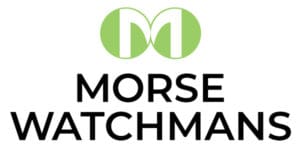6 Must-Include Key Control Applications for Hospital Physical Security
How does Key Control keep hospitals secure, safer, and compliant?

Hospital campuses are open environments with a constant flow of patients, hospital employees, and visitors entering and exiting the property 24 and 7. For this reason, protecting the physical campus, medical information, equipment, and assets from sabotage, vandalism, theft, data security breaches, and bodily physical harm is critical.
To be prepared for unexpected security breaches, a nexus of security technology systems that share data with one another about events unfolding within the healthcare campus is essential for a robust security plan. Electronic key control systems provide detailed security and tracking for all facility keys and asset management with accountability and audit trails. Electronic key control interoperates with physical access control systems (PACS), intrusion detection, and surveillance video systems to provide comprehensive security information.
Key control manages and tracks all keys, provides access control, and protects assets. Accounting for and tracking keys prevents damaging security incidents that can cost millions of dollars and/or bodily harm and loss of lives.
Key control systems also help hospitals stay compliant with HIPPA (Health Information Privacy Security) as well as attain and maintain rigorous healthcare standards and measurements from The Joint Commission. Let’s examine six electronic key control solutions that significantly improve security on hospital campuses:
- Pharmaceuticals – Key control protects access to medicine storage areas and dispensaries and provides accountability with audit trail reports to manage inventory as well as keys.
- Security and Law Enforcement Weapons – Security and law enforcement officials can leave weapons in electronic key control locker modules, or under lock and key in a safe, rather than carry them to patient floors. The secured weapons are easy to retrieve when credentials entered allow access to the keys or locker modules.
- Expensive Medical Instruments – Keeping delicate medical instruments only in the hands of highly skilled and trained medical professionals is essential as they are costly to repair and replace. Electronic key control systems allow authorized personnel only to remove and use keys for medical equipment storage areas. Key control locker modules can also contain smaller instruments and release them only to specific individuals.
- Medical Records – Heavy usage of IoT systems, such as laptops and tablets, in hospitals underscores the need to keep them secured and locked in key control system locker modules when not in use. Stolen devices give hackers the opportunity to manipulate the data feed of medical equipment or steal patient medical records data. Key control systems also protect hardware from being stolen from data server rooms.
- Hospital Mechanical Rooms and Maintenance Supply Rooms – Mechanical rooms contain climate control and electrical operations infrastructure that must be protected from sabotage and damage. Maintenance supply rooms contain tools such as heavy flashlights, crow bars, and hammers, which can also be used to cause vandalism and physical harm. A key control system provides extra security needed for these key-accessible rooms.
- Hospital Fleet Vehicles – Ambulances, ambulettes, medical transport shuttles, and other key-start vehicles owned by the hospital all require usage by authorized personnel only. Keys to these vehicles need to be secured and monitored so they are available to only authorized personnel when they are needed.
Optimizing physical security for patients and the hospital campus population is a top priority that also helps hospital administrators meet compliance with government regulations and prevent potential security liability incidents. Adding electronic key control to hospital and healthcare facilities improves data, protects assets, and strengthens security with greater accountability.
If you appreciated this article and want to receive more valuable industry content like this, click here to sign up for our FREE digital newsletters!
 Leading in Turbulent Times: Effective Campus Public Safety Leadership for the 21st Century
Leading in Turbulent Times: Effective Campus Public Safety Leadership for the 21st Century
This new webcast will discuss how campus public safety leaders can effectively incorporate Clery Act, Title IX, customer service, “helicopter” parents, emergency notification, town-gown relationships, brand management, Greek Life, student recruitment, faculty, and more into their roles and develop the necessary skills to successfully lead their departments. Register today to attend this free webcast!








